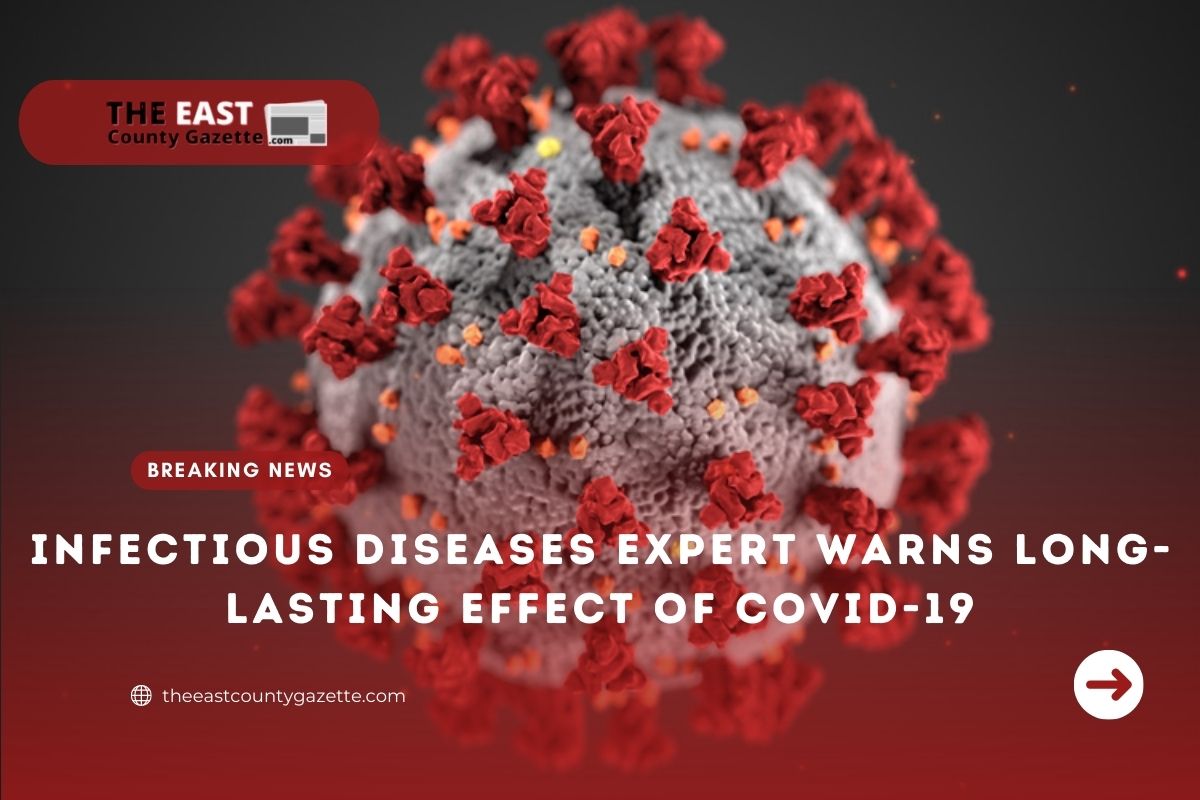It is estimated that over half of all those who contract COVID-19 experience some sort of long-term health impact as a consequence, some even for many months afterward, which had a serious impact on their lives, Dr. Jeanne said Marrazzo.
“It’s over 50 percent, and that’s consistent across countries. Getting COVID is not fun, but having long COVID is even less fun,” Dr. Marrazzo said during a Facebook Live session Thursday hosted by the Medical Association of the State of Alabama.
Marrazzo said that many people were having long-term problems following COVID infection in the spring after the first wave of COVID-19.
Syndrome, which doctors have observed in numerous studies since patients have continued health problems.
Marrazzo said these prolonged health struggles aren’t limited to those hospitalized for severe illnesses.
Read More: Kyle Rittenhouse Pleads Not Guilty, Legal Battle Continues
COVID can lead to fatigue, weakness, fever, night sweats, anxiety, insomnia, and loss of taste or smell in those who did not stay in the hospital when they had Corvid-19.
“And then the other area is neurocognitive impairment, so there is this COVID brain fog that people describe,” Marrazzo said.
In addition to breathlessness, another common symptom among those not hospitalized is the feeling of being out of breath.
“These are often young people who often were unvaccinated, and they were very, very functional. Often athletes previous to this, and they don’t feel like they’ve been able to run, for example, the way they used to run,” Marrazzo said.
For those who were hospitalized with COVID, long-term symptoms include skin rash, hair loss, increased anxiety, nausea, vomiting, loss of appetite, diarrhea, stomach pain, and headaches.
“Functional impairment was really common, meaning basically that they just didn’t feel like they could do what they used to do, and that was associated with fatigue or muscle weakness,” Marrazzo said.
In UAB’s clinic that helps those with long COVID most patients have those symptoms for three months or longer, Marrazzo said.
Marrazzo said it’s not clear who might be more likely to suffer from long COVID, and there’s not yet enough studies on long COVID in children.
In patients who get COVID in breakthrough infections, vaccination does not seem to prevent long-term illness, but it does seem to reduce the risk, Marrazzo said.
“I think that these data are concerning,” Marrazzo said.
“They really say that we are dealing with a real syndrome that these patients are suffering from. They’re suffering from something we don’t really understand.”
Read More: FBI Arrests ‘Suspected Serial Killer’ In Connection With Deaths In Missouri And Kansas
Louisiana State University has awarded UAB a grant to broaden that understanding.
According to the University of South Alabama’s plan, about 900 people with COVID cases within its three geographic areas, or those who still have it, will participate in this program.
Marrazzo said the study aims to gain understanding of long-term COVID by studying those people for up to four years. The study may begin in December.
The Alabama State Health Officer Dr. Scott Harris noted that one of the common arguments he hears is that people do not believe that they aren’t personally at risk for serious illness from COVID.
“Clearly, there’s a lot more at risk than just what happens during the acute illness,” Harris said.
By an improvement in COVID case counts and hospitalizations, the state’s vaccination rate has declined, Harris said.
According to the Center for Disease Control and Prevention, Alabama ranks fourth out of all states when it comes to the proportion of people who are fully vaccinated.
“Most of the shots that we’re giving right now are third shots. They are booster doses,” Harris said.
Harris said many people will be gathered together on Thanksgiving and Christmas holidays nears, which could lead to an uptick in COVID cases.
In his words, people should try to stay outside if they can, and but should wear masks around others.
“If you haven’t been vaccinated yet you’re not going to be protected by Thanksgiving. There is still time to protect yourself for the December holidays and the New Year,” Harris stated

